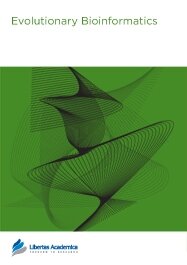

Publication Date: 18 Aug 2013
Type: Original Research
Journal: Evolutionary Bioinformatics
Citation: Evolutionary Bioinformatics 2013:9 327-342
doi: 10.4137/EBO.S12539

Elucidation of evolutionary factors that enhance protein thermostability is a critical problem and was the focus of this work on Thermus species. Pairs of orthologous sequences of T. scotoductus SA-01 and T. thermophilus HB27, with the largest negative minimum folding energy (MFE) as predicted by the UNAFold algorithm, were statistically analyzed. Favored substitutions of amino acids residues and their properties were determined. Substitutions were analyzed in modeled protein structures to determine their locations and contribution to energy differences using PyMOL and FoldX programs respectively. Dominant trends in amino acid substitutions consistent with differences in thermostability between orthologous sequences were observed. T. thermophilus thermophilic proteins showed an increase in non-polar, tiny, and charged amino acids. An abundance of alanine substituted by serine and threonine, as well as arginine substituted by glutamine and lysine was observed in T. thermophilus HB27. Structural comparison showed that stabilizing mutations occurred on surfaces and loops in protein structures.
PDF (1.33 MB PDF FORMAT)
RIS citation (ENDNOTE, REFERENCE MANAGER, PROCITE, REFWORKS)
Supplementary Files 1 (745.17 KB ZIP FORMAT)
BibTex citation (BIBDESK, LATEX)
XML
PMC HTML

It was a nice experience for me to publish my first paper in Evolutionary Bioinformatics. The peer review process was fast, critical, helpful and fair. The production process was also fast and accurate. Thanks for your hard work.
Facebook Google+ Twitter
Pinterest Tumblr YouTube